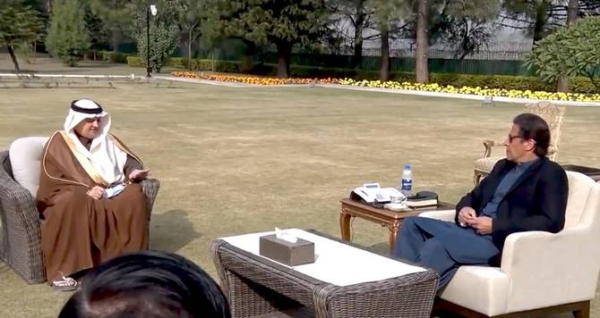The Kingdom of Saudi Arabia’s (KSA) repeated attempts to choke Pakistan, by, inter alia, asking it to pay back the interest-based three billion USD loan and stopping its supply of oil on deferred loan, are proving futile since the country seems to be unfazed.
Has Balochistan Toppled Kashmir To Emerge As The Most Dangerous Place In South Asia?
In fact, Pakistan has turned the tables on KSA, with Saudi foreign minister Faisal Al Farhan deciding to visit the country, which is an attempt to ‘placate’ the Imran Khan government, according to the experts.
The relations between the two countries hit their nadir on August 6, 2020, when Pakistan foreign minister Shah Mehmood Qureshi suggested that Pakistan should distance itself from the KSA-run Organization of Islamic Countries (OIC) for not sharing the country’s position on Kashmir.
And just eight days later, KSA nudged UAE into establishing full diplomatic relations with Israel and had in the past four months exerted immense pressure on Pakistan to accept Israel, which was resisted by the country.
KSA wanted to coerce Pakistan into accepting Israel in lieu of the loans and other aid but the country showed spine and did not budge. If not for China, Pakistan could not have afforded to stand up to KSA’s intimidating tactics considering its economy has been neck-deep in debt and in severe turbulence for the last few years.
China helped Pakistan return its loan back to the KSA, but it turned out to be a tragedy for the Islamic kingdom. KSA may have gotten its 2 billion USD loan back but the nation lost billions of USD as a fallout of Chinese antagonism.
The kingdom’s oil industry faltered as the global oil prices nosedived, plummeting even below zero at one point. China grabbed the opportunity and stocked its oil reserves well beyond 2021.
It stopped importing oil from KSA, downgrading the kingdom from the largest to the third-largest supplier of oil to the communist nation by the end of August 2020. The oil prices had plummeted due to the spread of the COVID-19 pandemic.

In order to assuage the mood in Islamabad, KSA ambassador Saeed Al-Malki met Pakistan PM Imran Khan on December 21, 2020, and was reportedly confronted by the ‘tough’ body language of Khan, which was a message that Pakistan was no more willing to be the remote-controlled extension of KSA, and therefore, Faisal Al Farhan visit had to be necessitated.
The move is likely to see a softening of KSA’s position which would be primarily aimed at goading China, which has been the source of the Kingdom’s troubles lately. After all, China had once been the number one importer of the country’s oil, the mainstay of its economy.
Perhaps, for the first time in its 72 years of history, Pakistan played its cards well vis-a-vis KSA and it conspicuous through the body language of Imran Khan as he met the KSA ambassador.
His gesture of waving his hand gestured that Pakistan was no more a cakewalk for KSA, which, of course, was nothing short of a shock as KSA had always considered Pakistan to be its ‘colony.’
The Saudi ambassador to the country must have communicated the mood in as many words back to Riyadh. However, much water has flown under the bridge and Pakistan will no longer toe Riyadh’s lines in the future.
The last couple of months have been eventful for the Arab-Israeli bromance, with the Arab states raring to embrace Israel and the Israeli intelligence chief Yossi Kohen visiting KSA and the subsequent meeting of Crown Prince MbS and Israel PM Benjamin Netanyahu in Neom city.
Alongside, the war drums have been beating with the US, Israel and KSA planning an attack on Iran, the developments have already set the next coming scenario under US President-Elect Joseph Biden into motion, who is likely to give a cold-shoulder to Pakistan.
Biden may also ruin the plans of MbS as he has been issued a summon from the US over an allegation of having played a role in the killing of journalist Jamal Khashoggi. KSA is soon to announce its establishment of relations with Israel.
Therefore, there may be little change in the power dynamics with Pakistan and China already embroiled in a war-like situation with India, which has the support of the US after signing BECA, along with Israel and KSA.
Hence, the visit from Faisal Al Farhan is not likely to squeeze anything and will, therefore, be inconsequential if not a damn squib.
The visit may also be an opportunity to arm-twist Pakistan since Israel would not use the US but KSA for the purpose. Perhaps, Pakistan has now gone too ahead with Turkey, Malaysia and Iran as an alternative to the power bloc against the KSA.
Follow EurAsian Times on Google News